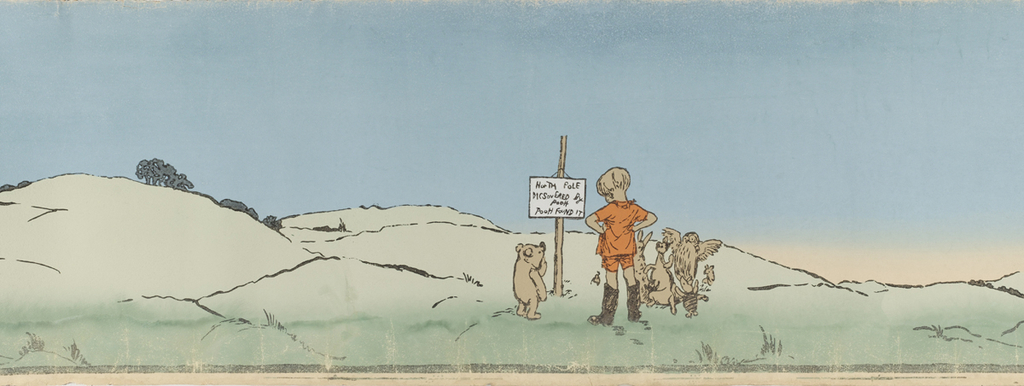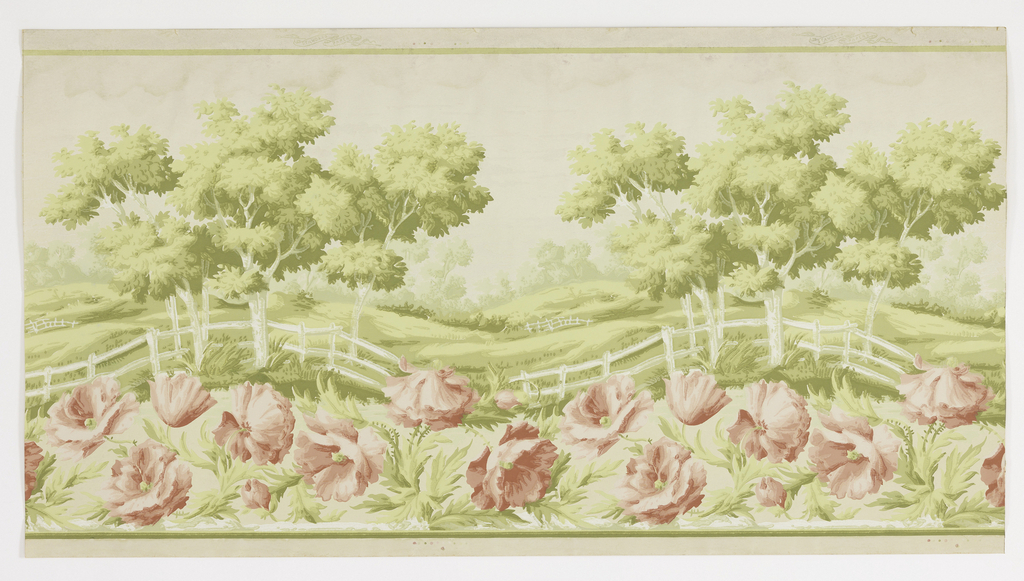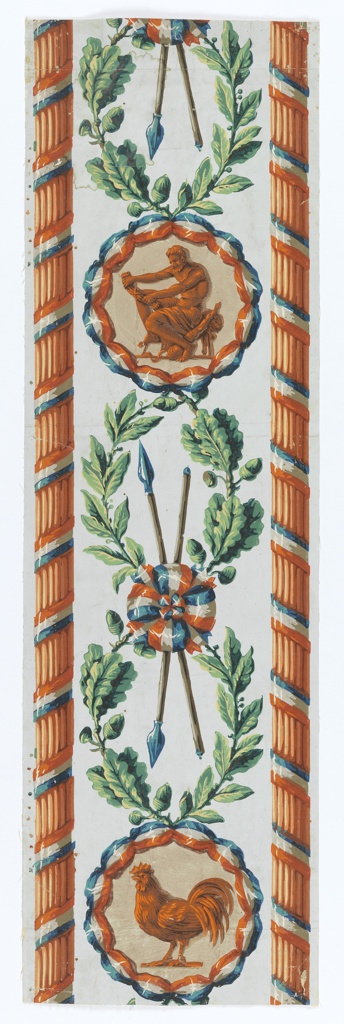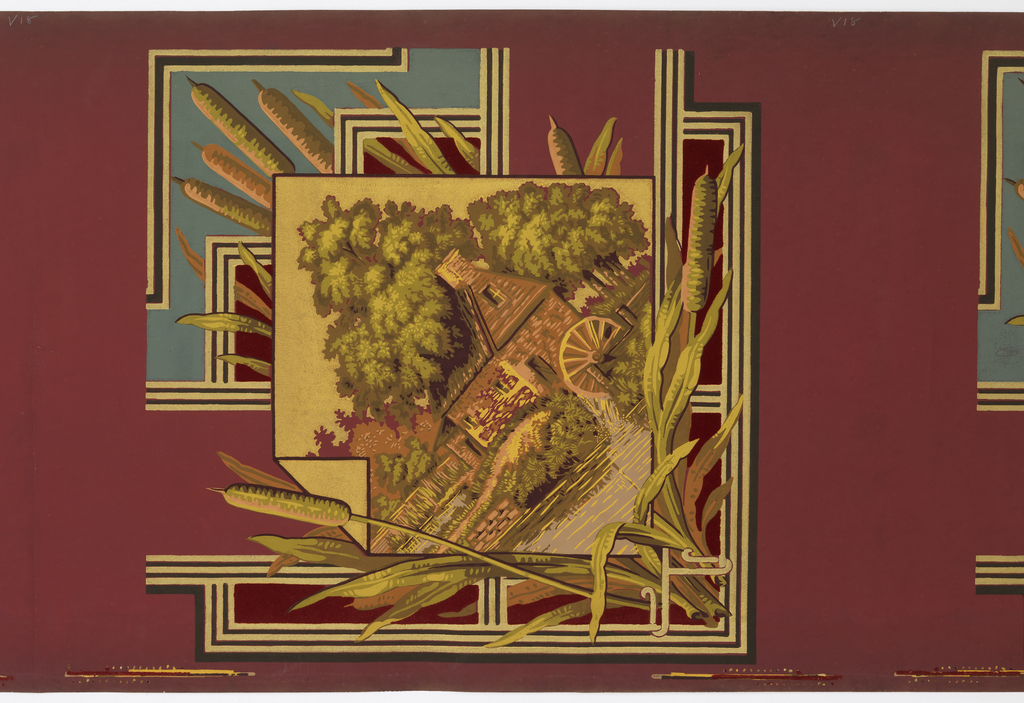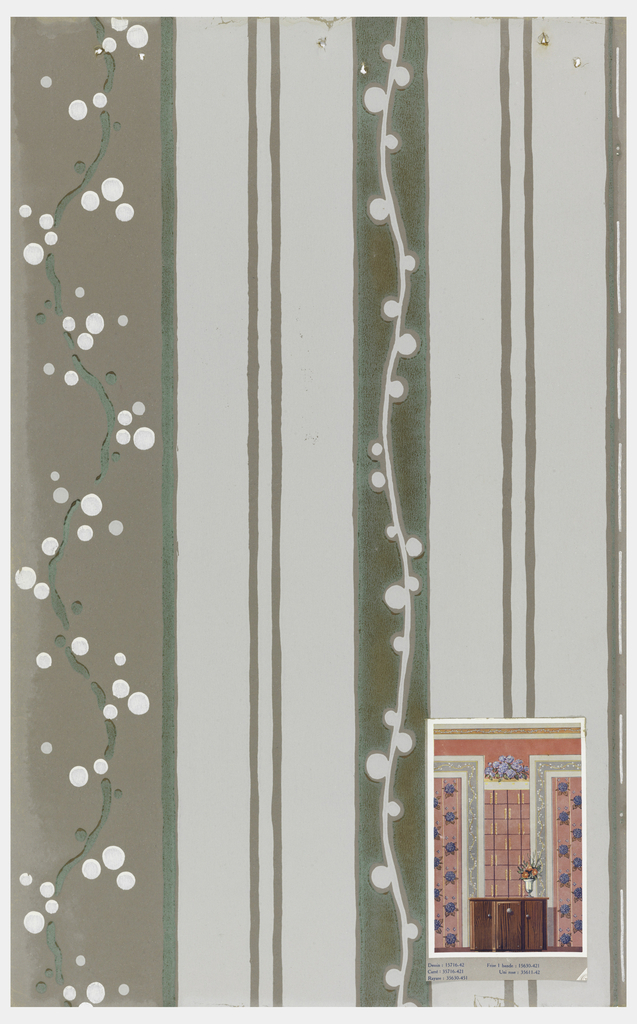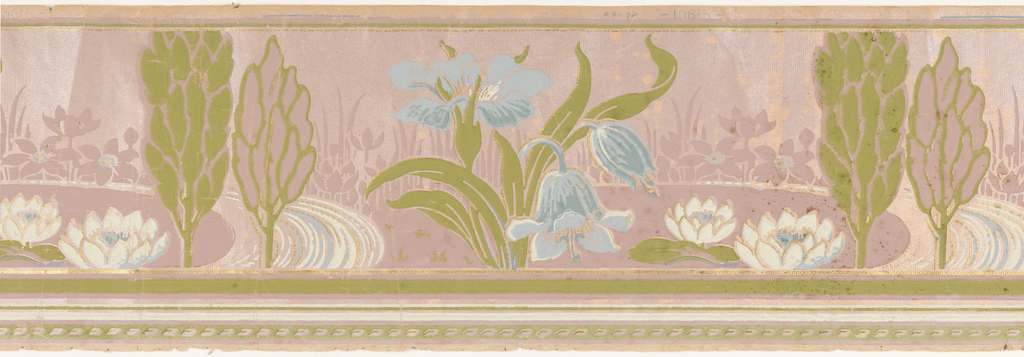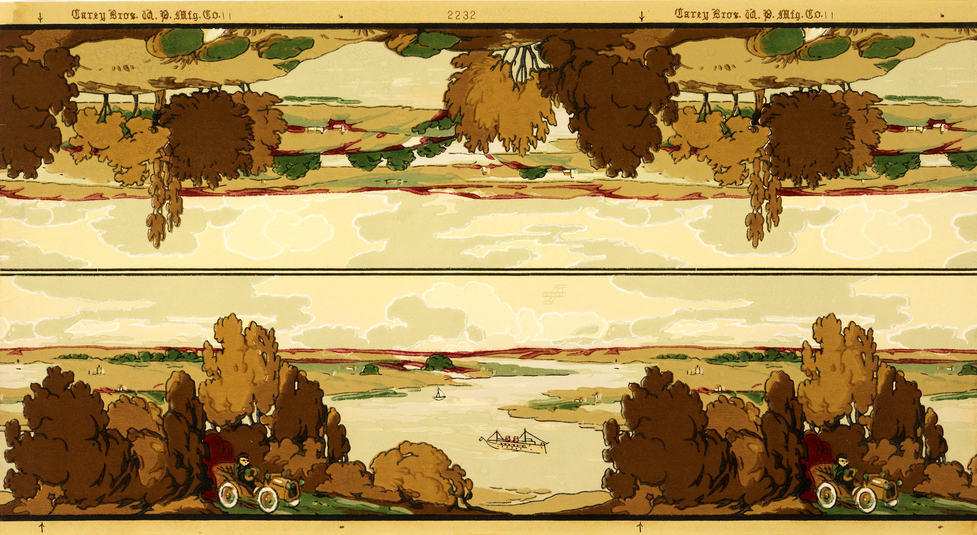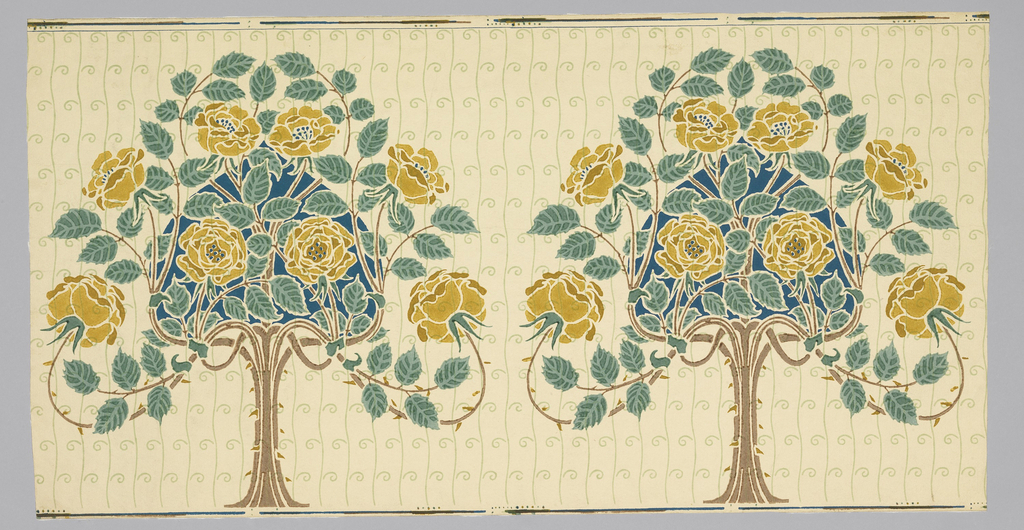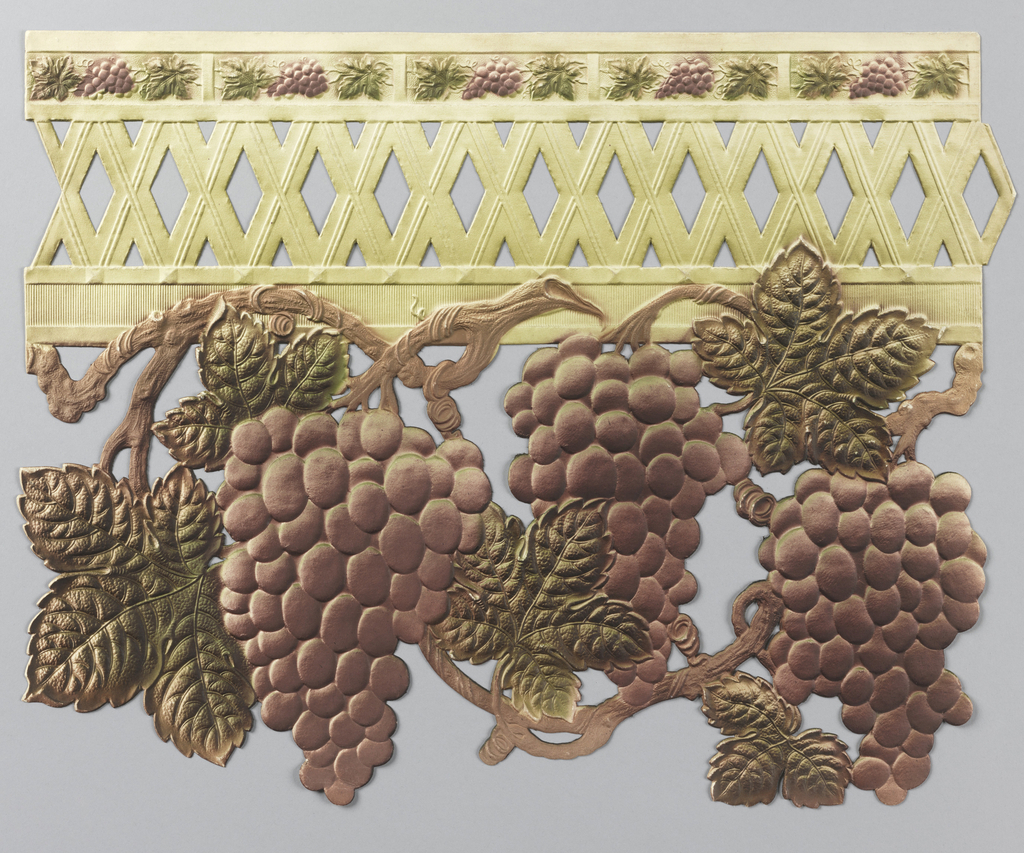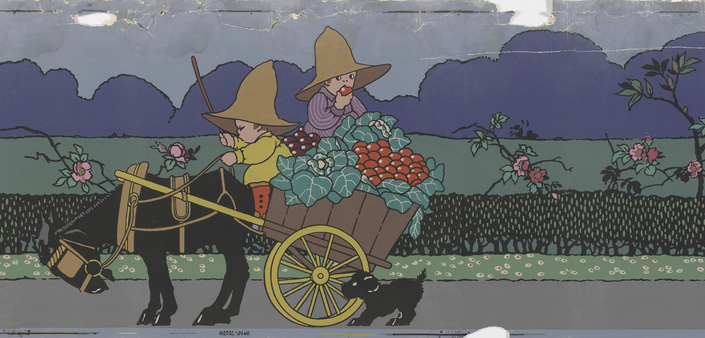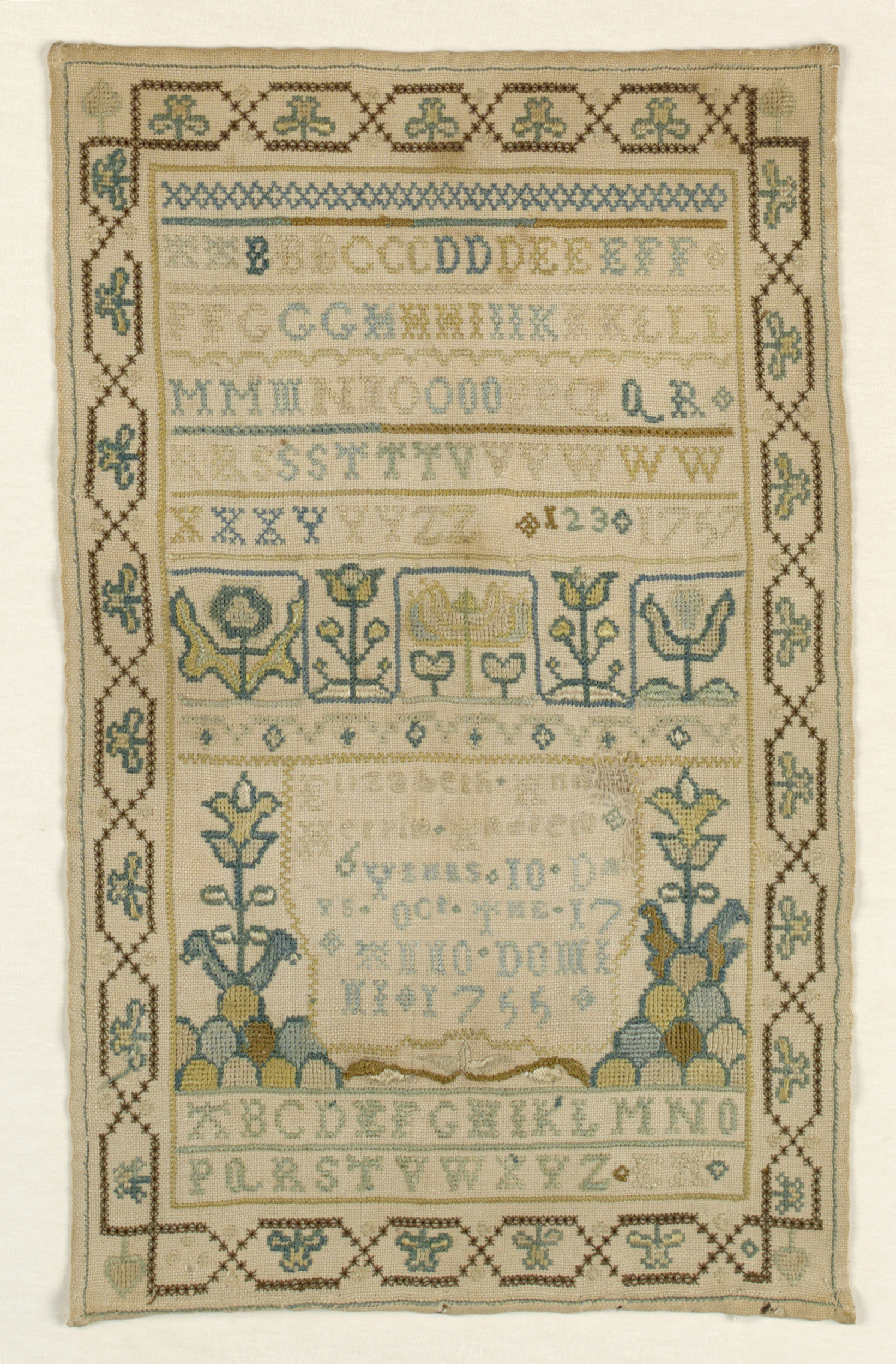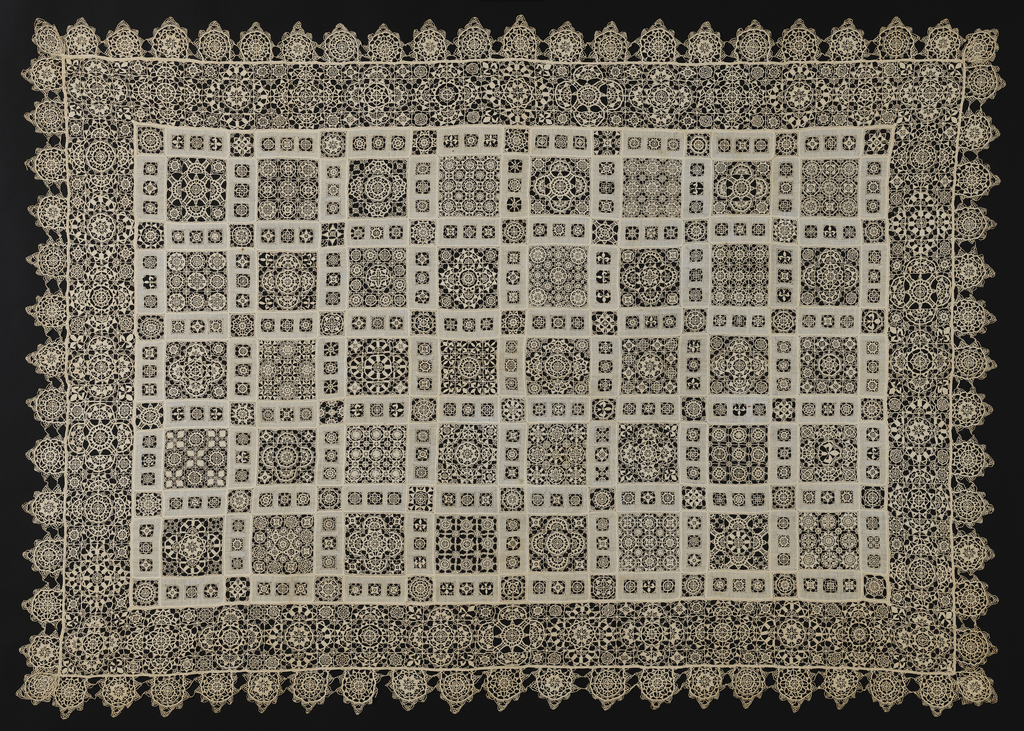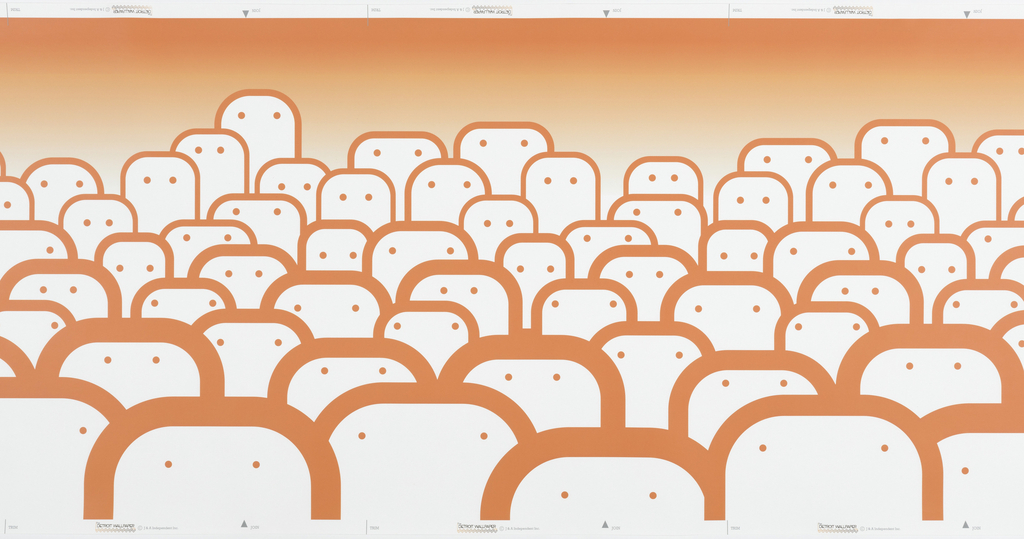This post was originally published January 18, 2013 and is being reposted in a belated commemoration of A.A. Milne’s birthday and the creation of this wonderful story and its beloved characters. This children’s frieze captures the adventures of Winnie the Pooh and Christopher Robin. This is a woodblock print and was produced within a year...
This is a fun frieze, also known as a wide border, produced in America during the early years of the twentieth century. It captures a bucolic scene of rolling hills, white picket fences, and fields of red poppies. I almost expect to see horses trotting by, or cows grazing. The design has a deep perspective...
There are a number of wallpapers in the museum collection produced during the French Revolution period, but this is the only border paper. The design contains numerous symbols of the Revolution. There are two medallions, each framed in scalloped tricolor ribbons. The top medallion contains Hercules, sitting on a stool with his club and lion...
If you’ve ever thought it might be nice to be a fly on the wall, think about the fun you could have with a bird’s eye view from the ceiling. You could be part of the beautiful ceiling decoration that was so fashionable during the Gilded Age. Today’s wallpaper would have been part of that...
Wallpaper sample books are one of the lesser known areas of the Wallcoverings department. While sample books can vary greatly in quality and size, each has a story to tell, offering insights into period color trends and wall treatments. The earliest surviving American sample book was produced by the Janes & Bolles Company, in business...
“Fast and easy” is how this collection of borders was marketed to the public. Designed especially for the do-it-yourself market, these narrow borders were packed in individual boxes, sold in twelve foot lengths, and all were pre-pasted. They just had to be dipped in water and stuck on the wall, though consumers were advised to...
Most wallpapers designed with a water theme were intended for use in bathrooms, though given the early date of this Art nouveau border with its pond and water lilies it was possibly intended to partner with a similarly-styled wallpaper in a bedroom. Most wallpapers for the bathroom designed before 1910 appeared more hygienic due to...
This wallpaper border shows two landscape scenes with the bottom one illustrating different forms of transportation including an automobile, a steam-powered boat, and a bi-plane faintly visible in the sky. While the design contains three modes of transport in use at the time this wallpaper was produced, it seems surprising that a train was not...
This is a wallpaper frieze containing stylized rose bushes printed on a striped and swirled ground, while an upside down heart motif placed behind the bush defines the shape of the climbing roses. The motif of the rose vines is nearly symmetrical and the delicacy of the scrolling and curving vines shows the influence of...
Presenting an unusual wallpaper border that reflects both the current wall fashion and the use of new technology. This paper border is embossed and die-cut, with many open or pierced areas within the design. The border consists of large bunches of purple grapes hanging on the vine with green-colored foliage. The vine is suspended from...
This charming frieze doubles as an overview of women’s fashion from the period 1700-1900. It features nine women grouped into trios separated by a curvilinear motif of a flowering vine. On the far left, a woman in simple colonial dress stands next to a woman in mid-eighteenth-century and a woman in late-eighteenth-century garb. The next...
I have long admired the wide children’s borders, also called friezes, designed and produced in the early twentieth century, prior to the Great Depression in 1929. Cooper Hewitt has a fair collection of these with the most popular being Winnie the Pooh, produced ca. 1926, coinciding with the release of the book by A.A. Milne...
Elizabeth Ann Harpin Andrew was born on September 26, 1749, and stitched this sampler at the age of six. She ornamented her work with highly stylized floral motifs, framed with four-leaf clovers in a chain-link border. Elizabeth recorded the sampler’s completion date as October 17, 1755, and carefully calculated her age on that date as...
Author: Cecilia Gunzburger September is New York Textile Month! In celebration, members of the Textile Society of America will author Object of the Day for the month. A non-profit professional organization of scholars, educators, and artists in the field of textiles, TSA provides an international forum for the exchange and dissemination of information about textiles...
Peepers is a wallpaper border designed with children in mind. It is less infantile in design than other children’s papers so will not be so quickly outgrown and can be and can be paired with another wallpaper or used alone on a painted wall to create an inexpensive decoration. The amorphous figures get smaller as...
